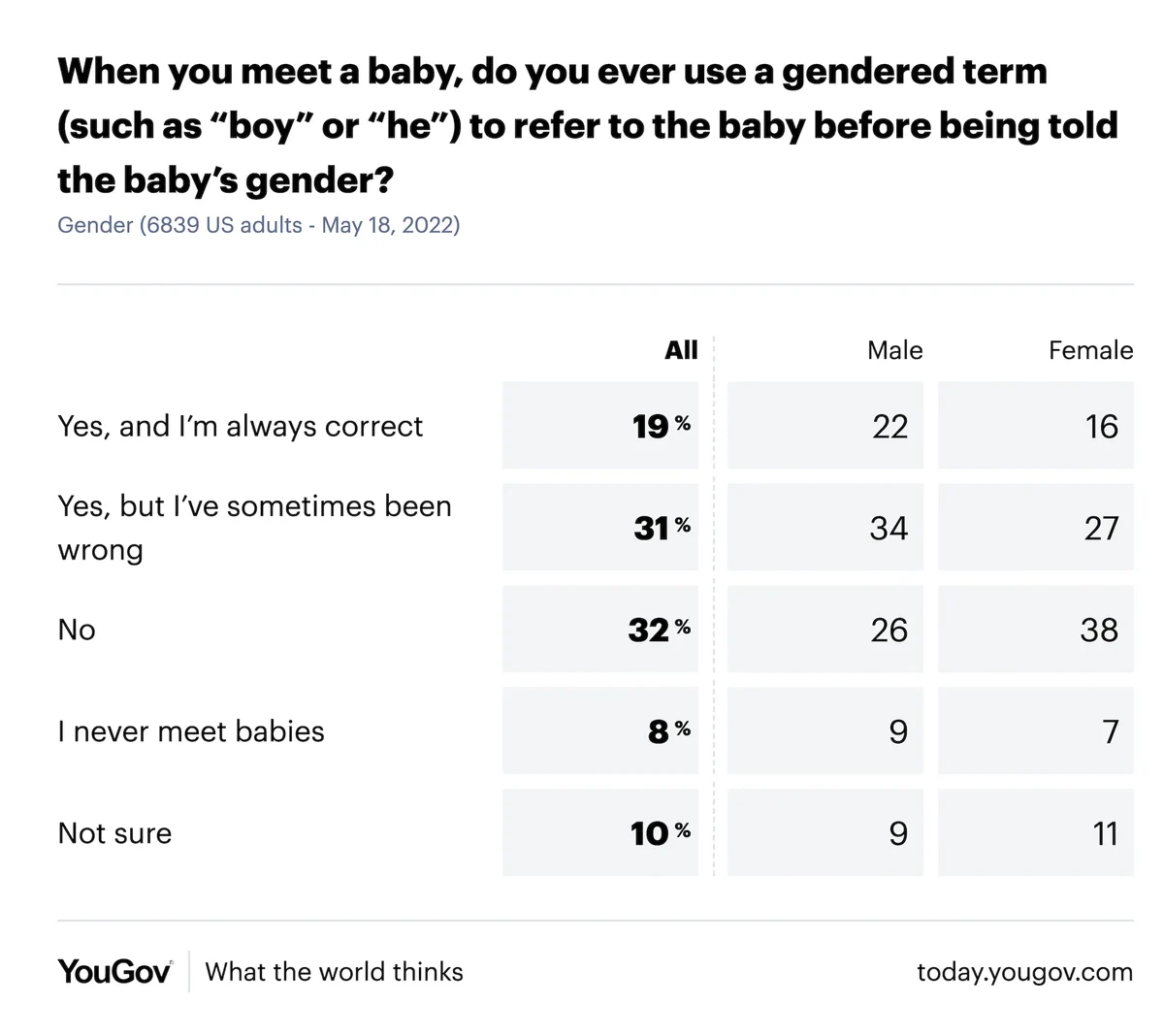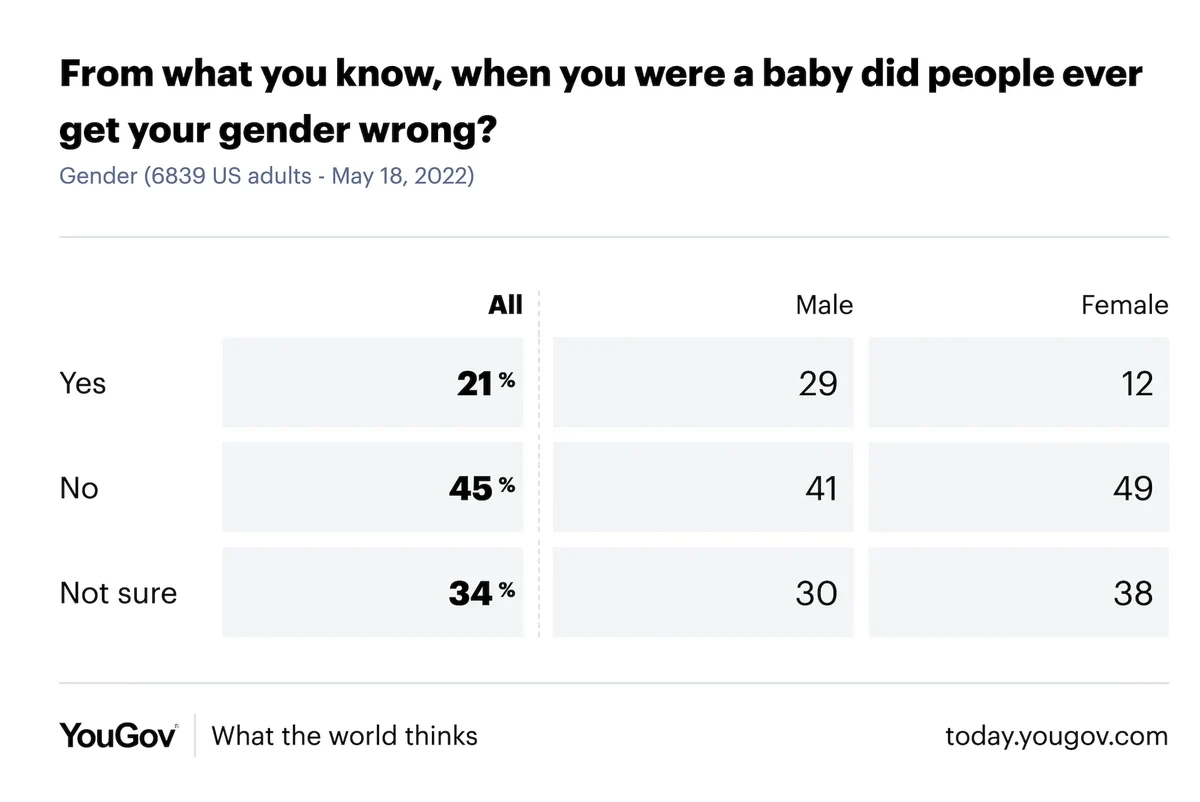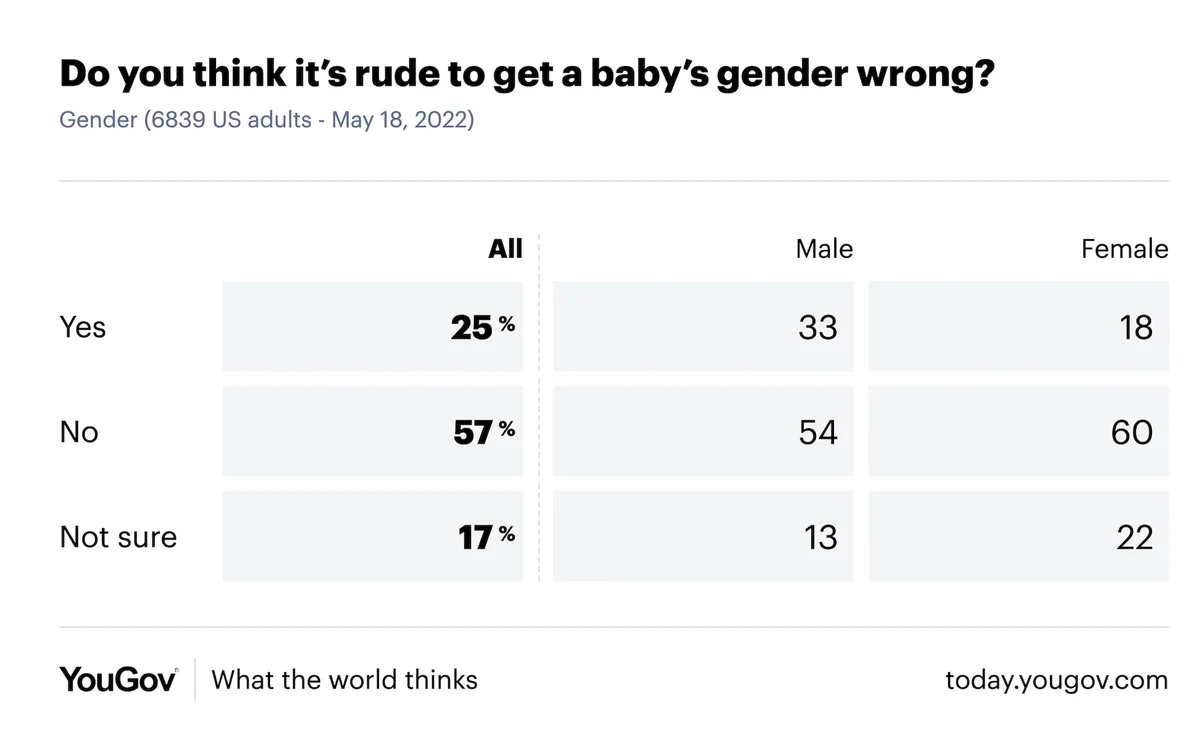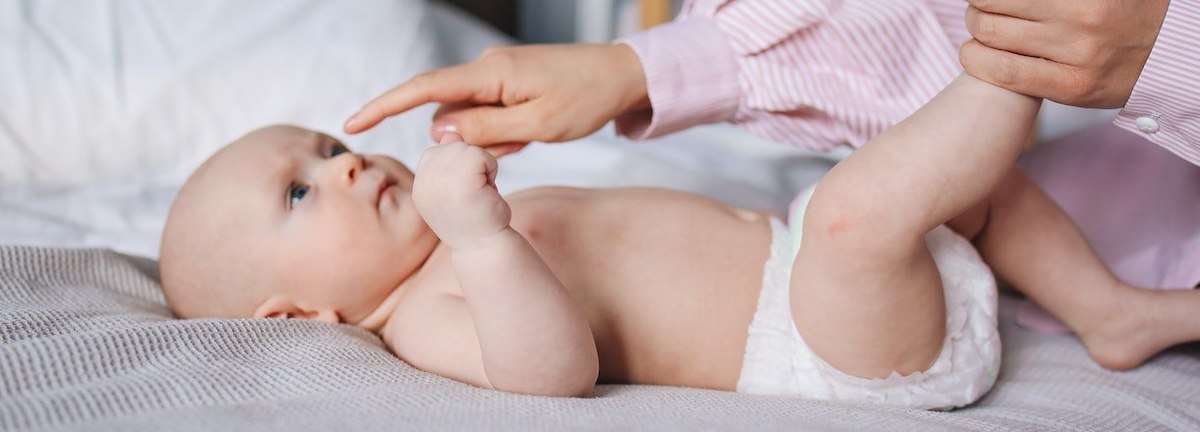It’s a relatable scene for many of us: You are waiting in line behind a parent holding a smiling bald baby, who makes a curious face at you as they babble and drool. “What an adorable baby,” you say. “He must be quite a handful.” The parent replies, “Yes, SHE certainly is.” You’ve just accidentally misgendered a baby.
Among Americans who say they sometimes encounter babies, over half (53%) say they occasionally use a gendered term (such as “boy” or “he”) to refer to a baby before being told the baby’s gender, according to a May 17 - 18, 2022 YouGov survey. Nearly two-thirds of people who say they use gendered terms when referring to babies (64%) report that they have at times incorrectly assumed the baby’s gender. About one-third (36%) say they are always correct in their spoken assumptions regarding the gender of babies they encounter.
Men are more likely than women to say they use gendered terms for babies they don’t know and are more confident than women about their self-reported track record of correctly guessing the gender of a baby. Of men and women who say they sometimes assume a baby’s gender, 38% of men say they’re always correct, compared to 33% of women. Younger adults are more likely to say they assume a baby’s gender than are older adults; they are also more likely than older groups to say they assume correctly rather than incorrectly.

We also asked Americans whether they know if they were ever misgendered as a baby. More than one-third say they aren’t sure. Among people who did provide a response, 30% say people sometimes got their gender wrong as a baby, while 70% say they didn’t. Men who provided a response (39%) are more likely than women (20%) to say they were sometimes mistaken for the other gender as a baby. Younger people are far more likely than older people to say they were sometimes misgendered, perhaps because they have more recent knowledge of their experiences based on stories they heard from people who knew them.

Is it rude to accidentally misgender a baby? One in four Americans (25%) believe it is, while more than half (57%) say it isn’t. Men (33%) are more likely than women (18%) to say that referring to a baby as the wrong gender is rude.
People who say it’s rude to refer to a baby by the wrong gender are five times as likely to say they personally were misgendered as a baby as are people who say it isn’t rude. They are also twice as likely to say they are always correct when guessing a baby’s gender as are those who say it isn’t rude. Surprisingly people who think it's rude are more likely to say they guess in the first place.

See the toplines and crosstabs from this poll:
- When you meet a baby, do you ever use a gendered term (such as “boy” or “he”) to refer to the baby before being told the baby’s gender?
- From what you know, when you were a baby did people ever get your gender wrong?
- Do you think it’s rude to get a baby’s gender wrong?
Methodology: This Daily Agenda survey was conducted by YouGov using a nationally representative sample of 6,839 U.S. adults interviewed online on May 17 - 18, 2022. The samples were weighted to be representative of the U.S. population, based on gender, age, race, education, U.S. census region, and political party.
Image: Polina Tankilevitch on Pexels











